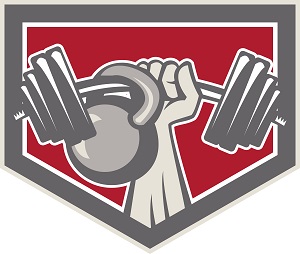As church leaders, it feels as if we are many times called upon to be all things to all people. We are required to be a pastor and a counselor and a mentor and a teacher and a friend and a leader … And the list goes on and on. It often seems as if everyone under our influence demands our time. In an effort to be accessible, we take meeting after meeting, leaving very little margin in the days of our lives. On top of the people to whom we want to minister, there are a slew of important activities that we lead, spearhead, or simply attend. There is the calling to write books and studies. There is pressure to maintain our social media profile and connect with people all over the world. There are a host of social justice issues about which we must be informed and do something.
Can we really do it all?
The simple answer is, no. No leader can be all things to all people. We simply are not created to have the capacity to do everything all of the time. It is essential that we as leaders learn about our personal and ministry capacity so that we can do the things to which we are called and leave to others the things that will not only distract us, but also may also draw us away from the true passions God has sewn into our hearts.
1) Know your strengths and weaknesses. Let’s face it: we are not gifted in everything. God has created you uniquely and given you, through His spirit, specific gifts and abilities that match with who you are called to be. Therefore, our capacity for ministry will always match that with which God has created us. Learning about the areas in which we are weak (or not gifted) will help us to know our capacity for that kind of service. As leaders, we do not need to accept positions that will require us to operate in our weaknesses.
For years, I spent time as a leader trying to develop the areas in which God had not naturally gifted me. My level of frustration grew larger with each passing day that I didn’t improve. I did not recognize that it was simply outside my capacity to excel in these areas. Once I finally released myself from being involved with these non-essential-to-me activities, I was free to thrive in my strengths. Taking the time to learn our strengths (whether through tests, mentoring, or simple experience) will help us to function within our capacity for greatest effectiveness.
2) Evaluate past successes and failures. The older I get, the more I realize that people only truly learn through experience. We can study, we can be mentored, and we can listen to 1,000 podcasts. But the only way to really learn is to do. And of course the more we do, the more mistakes we make. It is through both the successes and the mistakes that we can learn exactly what our capacity is for a wide variety of ministries. You may have great capacity as a teacher, seeing great achievements and results in that area. However, perhaps personal counseling drains you and has only resulted in frustration, both for you and those you counsel. From those experiences, you can deduce that your capacity for teaching is great, while your capacity for counseling is less. In that example, knowing your capacity for counseling doesn’t measure up allows us to engage others with high capacity in that realm to do that work with excellence, freeing us to operate with strength within our own capabilities. Lacking capacity in any certain area is not a sign of weakness or failure. Rather, it is good to use your past experiences to determine where it will be best to spend the majority of your own time and personal resources to achieve the best benefits for God’s kingdom.
3) Ask others. We can often be blind to our own shortcomings. We are so focused on all our goals that we often cannot see the areas in which we could use a little help. We miss those areas in which we lack capacity and need to work with others. It is imperative to get the opinion of others when trying to truly define your own capacity. Mentors, elders, and spiritual directors often have excellent discernment and can draw upon their own experiences when helping us see just how much we can do as younger leaders paving the way for our own ministries. Our peers can also help in this matter as they spend time with us both professionally and socially. They can often see things that we don’t see. They watch us as we respond to situations in a less than positive way because we are functioning out of our depth. They keenly observe when we are are operating in the center of how God has created us with enough capacity to succeed. Allow those others around you to give you feedback. Listen to them when they take a chance to speak into your life. Avoid defensiveness and know that God uses others to help us thrive in ways that we cannot on our own.
4) Monitor your emotional and physical health. As a young leader in a complex leadership assignment, I definitely fell into the trap of wanting to be all things to all people. I was able to accomplish this impossible task for a short amount of time, but soon all of the demands began to take a sharp toll on me not only professionally, but also physically and emotionally as well. I lost weight, couldn’t sleep, didn’t eat, cried most of the days, and blew up in anger at the slightest provocation. I was blind to these symptoms, but a caring doctor friend lovingly confronted me one day and finally I knew I had to make a change. I did not have the capacity to lead the number of people I was leading in the complex holistic ministry in which we were all involved. I looked confident and acted assured. But my body and emotions told a different tale. One of the surest signs that we have overstepped the boundaries of our capacity is a downturn in our emotional or physical health. As leaders we simply cannot ignore our bodies in the evaluation of our leadership skills and overall capacity for work. Regular health checkups are essential. Counseling or other emotional therapy are vital. Having friends and colleagues who can help appraise your well-being are crucial. Operating in the center of our capacity leads us to good health and positive emotional well-being.




